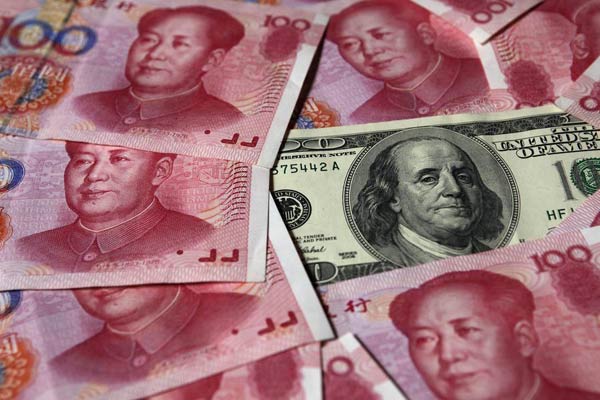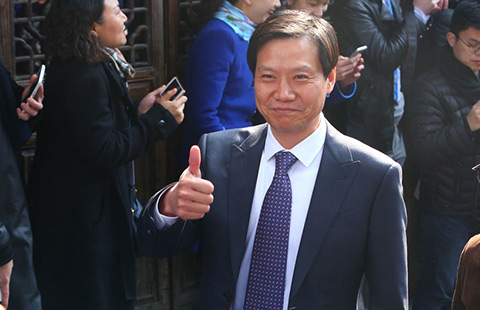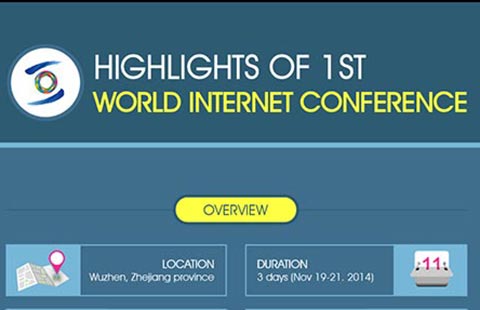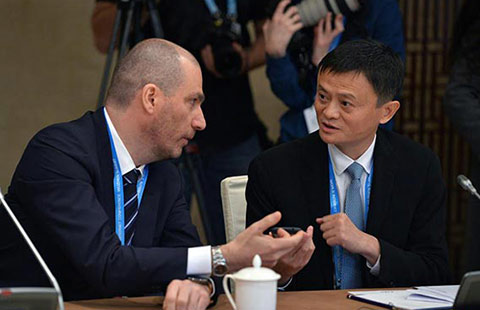US rate rise takes toll on Chinese currency
By Chen Jia (China Daily) Updated: 2015-12-18 07:13
 |
|
A $100 banknote is placed next to 100 yuan banknotes in this October 16, 2010 file picture illustration taken in Beijing. [Photo/Agencies] |
The People's Bank of China, the central bank, did not comment on the possibility of a monetary policy adjustment after the Fed's rate rise.
Andrew Colquhoun, head of Asia-Pacific Sovereigns at Fitch Ratings, said, "The onset of sustained capital outflows since 2014 has added to ... concerns over the consequences of the rapid rise in debt across the economy."
As Chinese economic growth may continue to slow next year-to between 6.6 and 6.8 percent as predicted by government think tank the Chinese Academy of Social Sciences-enterprises and local governments may feel greater pressure on debt repayment.
The academy has forecast that the economy will grow by 6.9 percent this year.
Zhu Haibin, chief China economist at JP Morgan Chase & Co, said a further interest rate cut would reduce financing costs for enterprises and local governments, but the scope for this is very limited.
The central bank has cut interest rates five times in 12 months. The one-year deposit rate now stands at 1.5 percent and lending rate at 4.35 percent.
Zhu predicted that the central bank may lower the reserve requirement ratio, or the amount of cash that financial institutions must set aside, "as early as this month, to complement liquidity when capital outflows accelerate".
Gao Zhanjun, managing director at CITIC Securities, said authorities may shift to an "easy" monetary policy from a "prudent" one next year, and this should strike a balance between ongoing restructuring reforms and policy support for growth.
"That would be a more difficult task as the global financial environment changes," he said.
- IP laws should focus on boosting creativity
- Lenovo's Eloan wants to be 'Uber' in P2P lending
- Web heavyweights set aside differences
- What they say on Xi's proposals
- Tech giants place emphasis on the Internet of Things
- Company leaders: Web tech crucial for traditional industry upgrade
- Beijing, Moscow seal more than 30 deals
- Tech innovation to help narrow information gap
















